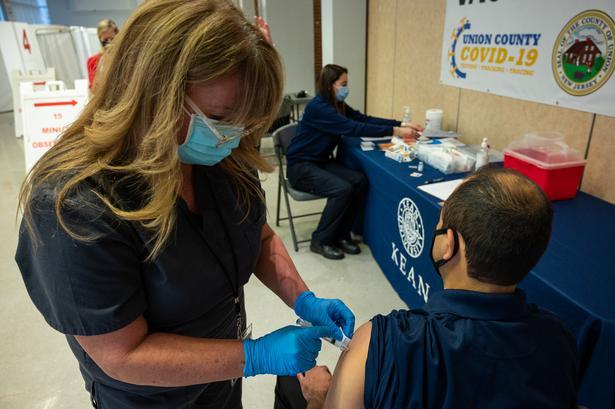Kean and Six Other NJ Public Colleges and Universities Generate $6.1 Billion in Economic Activity

Kean University and six fellow New Jersey public colleges and universities produce $6.1 billion in economic activity in the state each year and generate an estimated $220 million in state tax revenue, according to a new economic impact report.
The New Jersey Association of State Colleges and Universities — a group that includes Kean, New Jersey City University, Ramapo College, Stockton University, Thomas Edison State University, William Paterson University and The College of New Jersey — issued the study last week.
Kean and the other institutions also offer a strong return on investment for the state, according to the report. For every $1 million in state funds invested, the colleges and universities produce $16 million in economic activity, and the institutions support roughly 36,000 jobs and $2 billion in labor income in the state.
“Kean University is proud of the strong economic impact we have in the state of New Jersey and our regional community,” said Kean President Lamont O. Repollet, Ed.D. “Not only does Kean provide a life-changing education to our students, we are a cultural and research hub for the region and the state. As this report clearly shows, the state’s investment in Kean pays off well beyond our campus borders.”
Collectively, the report said, the NJASCU member schools themselves employ more than 10,040 people and have an aggregate annual operating budget of about $1.21 billion.
The report highlights Kean’s unique partnership with Union County during the COVID-19 pandemic, which includes hosting the county’s COVID-19 testing and vaccination sites, and its emergency food distribution events on campus, and helping to staff the sites with volunteers. Kean further facilitated the emergency response to the pandemic by establishing a federally certified testing lab in the University’s STEM Building to process test results.
New Jersey Secretary of Higher Education Brian K. Bridges, Ph.D., noted the report shines light on volunteer service and civic engagement the institutions provide in their communities.
“COVID-19 has wrought historic economic and financial uncertainty on New Jersey’s higher education sector, but our institutions have embraced the unprecedented challenges before them and triumphed,” Bridges said. “This economic impact report is proof that our colleges and universities are engines of economic vitality that will help drive the state's post-pandemic recovery while preparing students for lifelong success in a dynamically shifting workforce.”
To arrive at the $6.1 billion aggregate impact, the report covers four economic impact categories: annual operations ($2.16 billion); capital investments ($211 million); ancillary spending ($843 million); and an alumni wage premium, or graduates’ additional earning power spent back into the local economy ($2.89 billion). The report also captures the broader community, social and cultural contributions of member institutions.
Kean’s community support includes the John S. Watson Institute for Urban Policy and Research, which works with urban mayors throughout the state to identify and provide sustainable, replicable solutions to longstanding issues. The University is also a cultural hub for the region, with performances, concerts and exhibitions offered through Kean Stage, Premiere Stages and Kean Galleries. The recently introduced annual Jazz & Roots Music Festival, a free, outdoor concert at Kean University, drew more than 2,000 community members in its inaugural year.
The report also notes that member institutions invest in the state’s future by offering degree programs in high-growth, high-paying fields. Kean has more than 50 undergraduate degree programs and more than 70 options for graduate study, including a new graduate program in genetic counseling and doctoral programs in physical therapy, occupational therapy and speech-language pathology.
Kean provides a significant financial return to its graduates. The report shows that earning a degree from Kean is worth an aggregate $1 million in earning potential during a graduate’s career.
Gene Lepore, executive director of NJASCU, said the seven institutions together play a “vital” role.
“Our regional four-year public institutions are community anchors,” he said. “Although NJASCU member institutions generate a direct economic impact through creating jobs and purchasing goods and services, their primary function is offering accessible, affordable and high-quality education to our state’s residents.”
The full-length report and the executive summary, produced by Philadelphia-based economic consulting firm Econsult Solutions, are available on the NJASCU website.